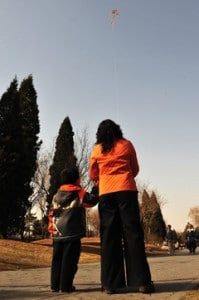On June 27, 2025, the U.S. Supreme Court issued a decision that, while procedural in nature, has sparked understandable questions from international intended parents pursuing surrogacy in the United States. Chief among them: Will my child still be recognized as a U.S. citizen?
This post is intended to offer clarity—based on what we know at the moment—for families navigating assisted reproduction across borders, reassuring where possible, candid where needed, and grounded in both legal insight and a deep understanding of what’s at stake. Although this legal landscape is evolving, our firm belief is that with careful attention and thoughtful planning, core legal protections remain firmly in place.
What Hasn’t Changed: The Constitution Still Holds
Despite headlines hinting at sweeping changes, the foundational guarantee of birthright citizenship remains untouched. The Fourteenth Amendment to the U.S. Constitution affirms:
“All persons born or naturalized in the United States, and subject to the jurisdiction thereof, are citizens of the United States…”
This clause has long ensured that all children born on U.S. soil, regardless of their parents’ immigration status, acquire U.S. citizenship at birth.
The Court’s June 2025 ruling did not alter the Fourteenth Amendment. It did not revoke anyone’s citizenship. Children already born in the U.S., whether through surrogacy or not, remain natural-born citizens.
What Prompted the Case: Executive Order 14160
Executive Order 14160, issued by President Trump on January 20, 2025, entitled “Protecting the Meaning and Value of American Citizenship,” aims to limit automatic citizenship for children born in the U.S. to parents who lack lawful or permanent status in the U.S.
Legal challenges to the Executive Order were filed immediately by 22 states, several cities and multiple organizations. These lawsuits were filed in several federal district courts, each of which issued a nationwide injunction to prevent implementation of the Executive Order while the litigation was pending. The legal briefing filed by the Administration in these cases reveals that the focus of the Executive Order is on curbing instances of pregnant women from other countries coming to the U.S. (with or without lawful status) to deliver a child so that the child will be a U.S. citizen (often referred to as “anchor-baby” and “chain-migration” situations, which are viewed, by the Administration, as abuses of U.S. immigration laws).
What the Supreme Court Ruled—And What It Didn’t
While the decision has understandably raised concerns, it’s important to distinguish between headlines and holdings.
The Supreme Court’s decision on June 27, 2025, ONLY addressed a narrowly framed procedural issue: whether lower federal courts have the authority to issue preliminary nationwide injunctions against executive actions. The Court ruled that, in most cases, they do not, and: 1) directed the lower federal courts to revisit the injunctions to either more narrowly tailor them or decide whether the States who challenged the Executive Order cannot obtain “complete relief” without a nationwide injunction; and 2) suggested plaintiffs should instead seek relief through properly certified class actions.
The Court did NOT rule on the merits of Executive Order 14160. The Court did not evaluate the substance or legality of the Executive Order itself, nor did it offer any interpretation of the Fourteenth Amendment.
What Happens Now
With the injunctions narrowed, many of the individual and organizations who sued are now seeking class action certification to restore broader protections. If no class is approved, or the lower federal courts to not re-address the nationwide injunctions, the federal government will need to issue implementation guidance possibly as early as July 27, 2025. Without a nationwide injunction, it’s possible the implementation guidelines may vary from state to state, and such inconsistencies could create delays, or administrative burdens with respect to the issuance of U.S. passports for children born in the U.S.
What This Means for ART Clients
- Children who have already been born in the U.S. are natural born citizens and their citizenship cannot be revoked. This is, and will remain, true for all children born throughout the U.S. up until the date of any change in the law. Recent denaturalization cases seen in the news involve persons who misrepresented facts during their U.S. naturalization process.
- Some jurisdictions may require extra steps.
- Delays in document issuance are possible.
We do not see a need for families to pause their surrogacy plans. That said, we do recommend thoughtful planning and consultation with your attorneys as you move forward. The legal path to parenthood remains sound; what may shift is the citizenship process, which could require additional coordination or documentation along the way.
How We’re Responding
At IFLG, we are actively coordinating with our colleagues in the fields of assisted reproduction, family law, and immigration law in the U.S., Europe, Latin America, and Asia.
Our legal team is:
- Monitoring litigation and policy guidance in real time
- Assisting with state-level parentage orders and documentation
- Preparing contingency plans
- Advising on jurisdictional strategies
We’re also tracking multiple lawsuits now being restructured as class actions, any of which could reestablish a uniform legal shield for all affected families.
Final Thoughts: Clarity in the Midst of Change
Even in times of legal uncertainty, there is room for steadiness, and even optimism.
The path ahead may require more coordination, more patience, and in some cases, more advocacy. But it is a path we know how to walk. Surrogacy, by its nature, is an act of hope, a decision to create life across borders, laws, and sometimes even bureaucratic friction. This moment does not erase that hope; it simply reminds us that it must be paired with preparation.
At IFLG, we see this not as a moment to pull back, but to lean in with stronger partnerships and renewed resolve. We are already helping families navigate the logistical questions that arise and are encouraged by the broad support across legal and policy communities for ensuring that children born through surrogacy are protected and recognized.
What’s unfolding is a legal process still in motion. And while we don’t yet have all the answers, we do have the tools and the experience to help you move forward with confidence.
Families choosing surrogacy today are doing so in a world that continues to evolve. The good news is that you do not have to navigate it alone. With vigilance, compassion, and a firm understanding of what matters most, we’ll keep building families and legal certainty together.
Hope is not naïve when it is supported by preparation. Let’s carry both!




